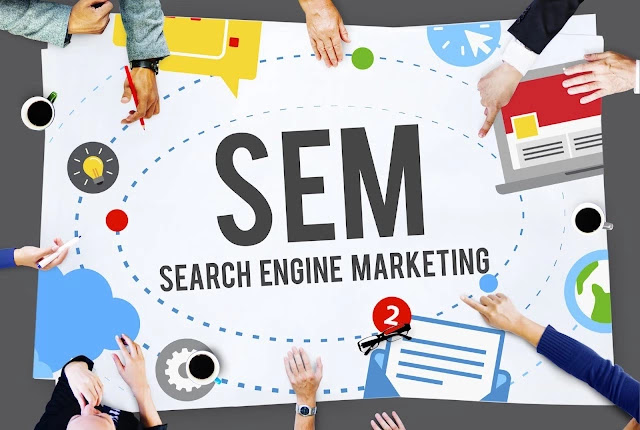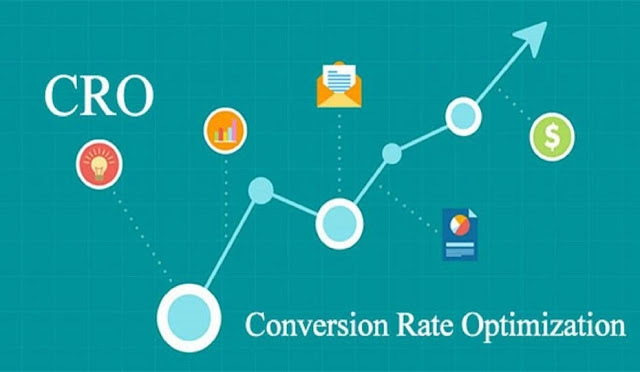Do you want to increase your website traffic? If so, you need to start using search engine marketing (SEM). SEM is a powerful marketing tool that can help you get more people to visit your website. Search engine marketing is a cost-effective way to promote your business by Zaid Alie Digital.
Many people don't know much about local search engine marketing. They assume that search engines like Google will show the results. Unfortunately, the search engine appears to be able to withstand the current doom-and-gloom of recession.
If you are looking for affordable search engine marketing, search marketers can help. Although there are many factors to consider when considering a website, SEM is the best way to maximize the power of a marketing consultant. We'll be discussing some of the key features that a top-tier search engine marketing agency must have in this article.
Why Search Engine Marketing Is Critical:
Search Engine Marketing combines SEO, Pay-Per-Click, and Social Media strategies to increase your company's visibility in search engine listings. Visibility without sales is meaningless. This is where SEM truly shines.
Online marketing must result in conversions that justify the investment. For example, a prospect might buy your product, sign up for your newsletter or become an affiliate program. You might also consider subscribing to a continuity program that generates monthly income.
Search engine marketing allows you to reach your audience and engage in the conversation already taking place in their minds. What encourages action which increases your conversion rate?
A Search Engine Marketing (SEM) Expert Necessary?
You can learn every tactic in a comprehensive search engine marketing strategy. Unfortunately, it is also very time-consuming. The algorithm that determines a local search engine's organic rankings changes constantly.
There seems to be an endless stream of changes for the major PPC platforms. Although social media platforms are still young, the strategies required to make them work will mature over time. It takes a lot of time to become proficient in search engine marketing.
An SEM specialist will create a search engine optimization campaign to push your website to the top ranks for your selected keywords. You can also have a PPC advertising campaign launched by them.
You can integrate social media marketing strategies to complement the rest of your search engine optimization deployment. You could establish these strategies on your own. But do you have the time or patience to learn them and put them into practice?
First Step Deeply Analysis:
Each search engine company must begin by analyzing its goals and needs. Who is where scale is crucial. The search engine marketing company should be capable of determining the best website size and features to reflect your products or services.
With this information, your company can rank high in search engines for your business. The best way to achieve this is to choose the right keywords in the website's content.
Google and other search engine companies scan your site looking for matches to the search criteria that the user has entered. These search criteria include keywords that must match your website's content. Search engine marketing techniques use additional google algorithms to rank results.
However, keyword-rich websites have a better chance of being ranked high in search engines, where professional search engine marketing firms can offer a very positive Return On Investment (ROI).
The agency will use special tools to identify your website's content's most relevant keywords and key phrases. For example, if your primary business is automotive, you should use as many words or phrases related to "automobile" as possible there are specialized tools available online.
Google AdWords will, for instance, return many pages of keywords and phrases related to "automobile" along with the search volume (numbers of times). Google will return information about the keywords "automobile" that an entered more than 2.5 million times.
Search Engine Marketing With Public Relations:
It was the first established online public relations of search engine optimization. These press releases can gain attention in search engines' organic listings. It helps to build your company's brand and pushes negative publicity on the first page.
Online PR is now part of a larger SEM context, including SEO, PPC, and online reputation management (ORM), and can use online PR to distribute a press release, which will help you gain attention in the natural listings. PPC campaign can then launch to direct your audience towards the press release on your website.
You can place links throughout the page that will lead to positive coverage. Positive coverage is more likely to reach the top of search engines' results pages—an essential element of ORM and search engine marketing.
- Keyword Spamming Or Stuffing:
If people search for your keywords and have more of them in more places on your website, Google will rank your page higher.
Suppose is exactly how SEM strategies used to work ten years ago. However, too many people started doing it, and searchers saw irrelevant results at the top of search rankings. Google then changed the way it ranks pages.
Unfortunately, Google's algorithm, which it uses to rank pages in search results, is more complicated than ever, thanks to years of experience with people trying to cheat the system.
Typing your keywords repeatedly in tiny font at the top and bottom of your page -- blocks of little text either in the copy or the header tags don't improve your relevance.
Increasing your keyword density above 10% -- you end up with a page full of text that doesn't make sense to anyone reading it.
Invisible text or keywords in white text on a white background -- this search engine marketing oldie is so frowned-upon that it can get you delisted from Google altogether.
- Irrelevant Keywords To Attract More Traffic:
So, you found some great keywords with low competition and great traffic numbers but not entirely on target with your website?
Just because Paris Hilton was the most searched-for term in the country (according to Google's 2007 stats), that doesn't mean that an article about her on your website will increase your traffic and sales.
It's tempting to put high-traffic keywords on a page to increase traffic. But you should either delete them or create a new website. People may visit your website or page searching for a keyword phrase and then find out that it has nothing to do. They leave!
Qualified traffic is the key to effective search engine marketing. If the traffic isn't targeted, all the traffic you get won't be of any benefit. As a result, you will see a decrease in conversion rates despite getting more people.
- Useless Content:
I can't tell you how many low-quality articles and blog posts I see every day that is just thinly disguised SEM tactics designed to get better search rankings.
Potential customers may need to visit your site six to eight times before they feel confident enough to purchase from you. So why would someone bother to return to your website if the content is just keywords and has no substance?
This search engine marketing tactic could damage your reputation and credibility. It's nearly impossible to get those back once gone.
- Doorway Pages:
Doorway pages are created solely for zaid alie digital marketers to search engines. These pages are usually very short in text but have a high keyword density. For example, if the page has only four words and two are "sailboat," that would give it a keyword density equal to 50%. Therefore, if you search for "sailboat," you must click through to the "real" page to view the actual content.
Search engines don't like this search engine marketing tactic because it clogs up their index with junk. So before you create a page as a doorway, make sure to check if it is helpful to your customers.
- Magic Pages, Redirects, And Cloaking:
SEM campaigns want to ensure that visitors who visit a page rank and see the same information they saw. But, unfortunately, this is not always true.
Site builders often create two versions of their websites. The site for spiders has the same content that search engines love. Regular visitors will see a place that is filled with flashy, off-topic effects. However, it is not the content-rich, relevant site that it claims to be.
Spammy redirects are also terrible SEO. These redirects will take you from the page you think it's going to (one that has been marketed to search engines) to another. This misleading search engine marketing technique has been misused so much that search engines don't believe it. You should only use 301 redirects.
Conversion Rate:
A conversion rate of 20% means that two out of ten clicks don't generate any profits for the websites. However, Ghose and Yang (2008) discovered that Pay Per Click conversion rates is approximately twice as high as SEO at 5.4% and 2.76, respectively, which means that Pay Per Click can be twice as profitable as SEO if it is implemented. Search Engine Optimization (SEO), and Pay Per Click: SEO has a higher click rate than Pay Per Click, while SEO's visibility can be lower than Pay Per Click.
ROI (Return On Investment):
Accounting professionals of all sizes will use ROI to measure the return on investment. iProspect (2005) surveyed 636 search marketers and 224 search agencies to determine the ROI of SEO and Pay Per Click.
Respondents revealed that SEO (35%) generates three times more traffic than paid search (11%). Interesting is that 42 percent of search marketers who use both SEO and Paid Search believe that SEO has a better ROI than Pay Per Click.




I think this is an informative post and it is very useful and knowledgeable. Really its Great Article .Join No.1 Institute for Digital Marketing Course in Jaipur with 48 Modules.
ReplyDeletedigital Marketing program
Post a Comment
Please do not enter any spam link in the comment box.